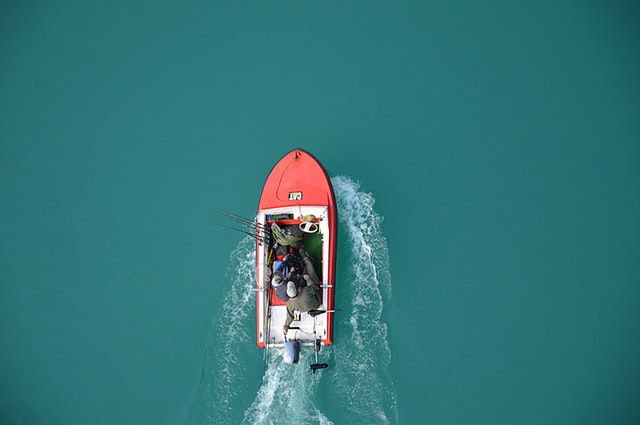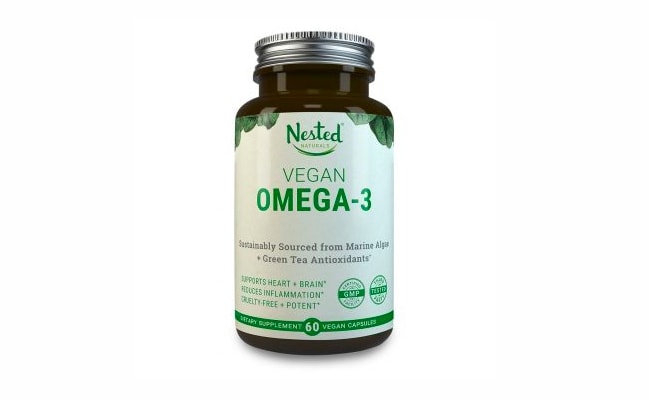Seafood has been touted as a health food for decades, but with more public awareness of issues like overfishing and pollution, environmental organizations and concerned consumers have become critical of the commercial fishing industry. This has prompted many to seek out “sustainable seafood”: eating locally caught fish from well-populated fish stocks is supposedly more environmentally friendly.
Setting animal welfare issues aside (yes, fish can actually feel pain), the sustainable seafood label may serve to soothe the consumer conscience, but is there any truth to it? Recent investigations into the seafood industry are revealing that companies purporting to sell “sustainable” seafood may be misleading their buyers, and restaurants have even been caught mislabeling fish species on menus.
The Associated Press recently published the shocking results of an in-depth investigation of the company Sea to Table, a sustainable seafood company that shipped their products to restaurants and individual customers. Sea to Table’s clients believed they were paying extra to support local fisherman and the environment—but the investigation revealed that Sea to Table had misrepresented the sources of their seafood.

They claimed that all of their fish was wild caught in American waters and was fished legally in-season. They built up a positive reputation over the years, with major clients ranging from celebrity chefs to popular food bloggers to farm-to-table restaurants. However, journalists discovered that Sea to Table had been selling farmed fish, species that were out of season, imported fish, and species that were illegal to catch at all. For example, Sea to Table shipped yellowfin tuna supposedly caught off the coast of New York to their restaurant clients, but a closer look at the product and the supply chain proved that the fish was actually caught in Indonesia.
Unfortunately, it’s not just middleman companies like Sea to Table who have misled consumers. An investigation into sushi restaurants in Los Angeles revealed that up to 50% of the fish on the menu was mislabeled—meaning that diners had no idea what they were actually eating and had no way of finding out where it came from. It appears as though these issues are widespread throughout the seafood industry, and consumer attempts to purchase only sustainable seafood might be fruitless in the end.
The fishing industry has contributed to the massive depletion of the majority of the world’s fish stocks, and animals such as whales, dolphins, sharks, and skates are also caught in the nets and labeled as “bycatch.” Furthermore, 46% of the plastic in our oceans is abandoned fishing gear, such as ropes, crates, and nets. The fishing industry has been so destructive to our oceans that some scientists predict we could run out of fish by 2048.
Despite the harmful impact of the fishing industry, many people are hesitant to give up seafood because we’ve always been taught that it’s healthy. Fish is a source of omega-3 fatty acids, which are an essential part of a healthy diet. There’s no doubt that omega-3s boost cognitive function, making this nutrient super important for mental health and concentration. But what if you could reap those benefits without eating seafood?
There are several plant-based options that contain omega-3. You can add flax seeds or hemp seeds to smoothies, sprinkle them on toast with nut butter, or add them to oatmeal. You can snack on chia seed pudding or walnuts. Even strawberries contain omega-3s—while they shouldn’t be your sole source of this nutrient, they certainly are tasty!

If you want to ensure that you’re getting the proper amount of omega-3s every day, and you’re not sure if you can eat enough plant-based omega-3s to guarantee that, you could always consider an algae-based omega-3 supplement. While these supplements used to be fairly expensive, prices are now much more reasonable, and taking just one a day will give you all the omega-3s you need—Labdoor is a great resource for checking the quality of your supplements. I personally recommend Nested Naturals Vegan Omega-3 supplement, which is sourced from an algae farm so that harvesting does not disturb marine life.

Moral of the story? Unless you caught it yourself, it probably isn’t “sustainable,” and while sustainability has become a catchy buzzword for many seafood companies, you’re better off finding alternatives if you want to eat an environmentally-friendly diet. Giving up seafood may not be an option for everyone—in remote, rural areas of the Arctic and tropics alike, indigenous people may need to eat fish to survive. But for those of us with the privilege to choose healthy, plant-based options, we can leave seafood off our plates if we want to eat sustainably.
Have you made the switch to plant-based sources of omega-3 fatty acids?
Also by Jane: My Stubborn Acne Cleared Within A Week After Eliminating *This* From My Diet
Related: Save Coral Reefs *And* Protect Your Skin With These Vegan, Non-Toxic Sunscreens
Microplastics Make Up 82% Of Plastic In Oceans. How You Can Make An Impact
Get more like this–Subscribe to our daily inspirational newsletter for exclusive content!
__
Photo: Pexels, Lauren Kirchmaier, Nested Naturals




